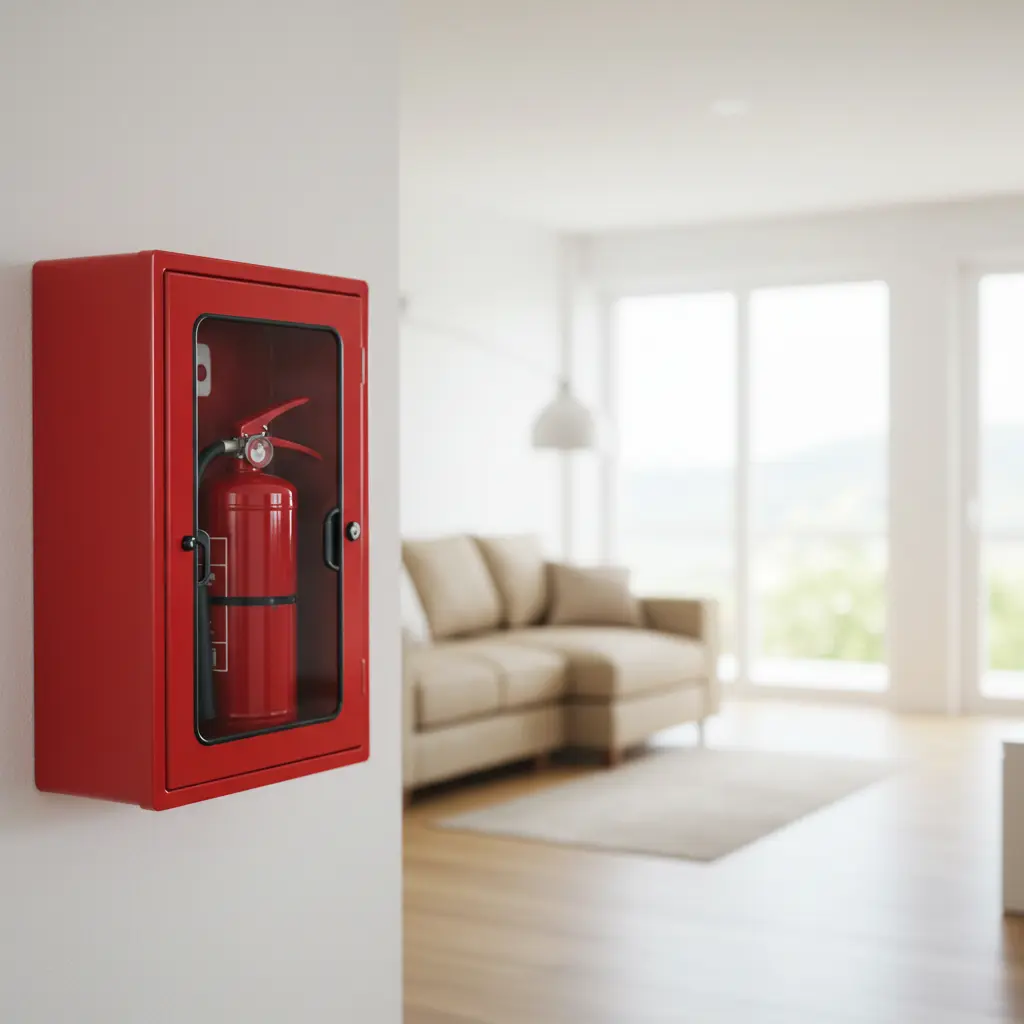
Basic Home Fire Safety
Basic home fire safety is about preventing fires and knowing what to do if one starts. It includes having smoke detectors on every level, especially near bedrooms, to give early warnings.
Fire extinguishers should be ready in key areas like the kitchen to tackle small fires. An escape plan with designated meeting points outside is important, and practicing it regularly ensures everyone knows what to do.
This approach helps protect your family and property from fire risks.
Common Causes of House Fires in Adelaide
1. Cooking – A Leading Cause of House Fires
Cooking-related fires are among the most common causes of house fires in Adelaide, particularly when stovetops are left unattended.
Grease fires can flare up quickly, spreading flames if not handled correctly. To prevent accidents, never leave cooking unattended, keep flammable items away from heat sources, and use a fire extinguisher rated for grease fires.
Installing a smoke alarm in or near the kitchen provides an early warning, reducing the risk of severe damage.
Simple precautions, such as turning pot handles inward and avoiding loose clothing while cooking, can also help prevent dangerous flare-ups.
2. Electrical Faults – Hidden Hazards in Homes
Faulty wiring, overloaded power outlets, and damaged appliances contribute significantly to house fires in Adelaide, especially in older properties.
Aging electrical systems may not meet modern safety standards, increasing the risk of short circuits. To minimise hazards, avoid overloading power boards, regularly check cords for damage, and hire licensed electricians for inspections and repairs.
Installing safety switches (RCDs) can prevent electrical fires by cutting power during faults.
Homeowners should also be cautious with high-energy devices like heaters and air conditioners, ensuring they are used as per the manufacturer’s guidelines.
3. Heating Equipment – A Winter Fire Risk
Portable heaters, fireplaces, and electric blankets are common causes of fires during Adelaide’s colder months. Heaters placed too close to curtains, furniture, or bedding can easily ignite flammable materials.
Always maintain a safe clearance (at least one metre) around heating devices and never leave them unattended. Regular chimney cleaning reduces creosote buildup, a major fireplace fire hazard.
Electric blankets should be checked for frayed wires and turned off before sleep. Proper maintenance and responsible use of heating appliances can prevent devastating fires.
4. Smoking & Candles – Small Flames, Big Risks
Carelessly discarded cigarettes and unattended candles are preventable yet frequent causes of house fires.
Cigarettes can smoulder in upholstery or trash bins, igniting hours later. Always extinguish cigarettes fully in deep ashtrays and avoid smoking indoors.
Candles should be placed on stable, non-flammable surfaces and never left burning unsupervised.
Battery-operated LED candles offer a safer alternative.
Installing smoke alarms near high-risk areas, such as living rooms and bedrooms, ensures early detection. By adopting safer habits, residents can significantly reduce fire risks from smoking and open flames.
Steps for Home Fire Safety
To keep your home safe, focus on both prevention and response.
1. Install smoke detectors on every level, test them monthly, and replace batteries annually.
2. Keep fire extinguishers accessible, especially in the kitchen, and learn how to use them.
3. Create an escape plan with clear routes and a meeting point outside, and practice it regularly with your family.
4. Be cautious in the kitchen by never leaving cooking unattended and keeping flammable items away from heat sources.
5. Regularly check electrical systems to avoid faults, and maintain heating equipment like fireplaces with annual inspections.
6. Educate your family, especially children, on fire safety and emergency numbers.
Responding to a Home Fire
Staying calm is essential to avoid panic, assessing whether the fire is small enough to extinguish safely with a fire extinguisher, and using the PASS method.
If the fire spreads or is uncontrollable, immediate evacuation following the escape plan to the meeting point is critical.
Calling emergency services (000 in Australia) from a safe location ensures professional help.
6 Home Fire Safety Measures You Should Take
| Category | Key Actions |
|---|---|
| Prevention (Equipment) | Never leave cooking unattended, keep flammable items away, and clean grease buildup. |
| Prevention (Kitchen) | Smoke outside, use safe candle holders, maintain the home, and educate a family. |
| Prevention (Electrical) | Keep heaters away from flammables, inspect fireplaces annually, and turn off when leaving. |
| Prevention (Heating) | Avoid overloading outlets, unplugging appliances, and getting professional inspections. |
| Prevention (Other) | Stay calm, assess the fire, use an extinguisher if safe, evacuate, and call 000. |
| Response (During Fire) | Stay calm, assess fire, use extinguisher if safe, evacuate, call 000. |
How VD Fire Safety Can Help You
At VD Fire Safety Adelaide, we’re here to keep your home or business safe from fire risks. We offer professional fire safety services in Adelaide, including smoke detector installations, fire extinguisher testing, and thorough safety inspections.
Our team also provides electrical safety solutions to prevent faults that could spark a fire. With a passion for protecting lives and properties, we’re your trusted local experts.
Visit us at vdfiresafetyadelaide.com.au to learn more. Don’t wait for a fire to strike—contact VD Fire Safety today for peace of mind and expert care tailored to your needs!
